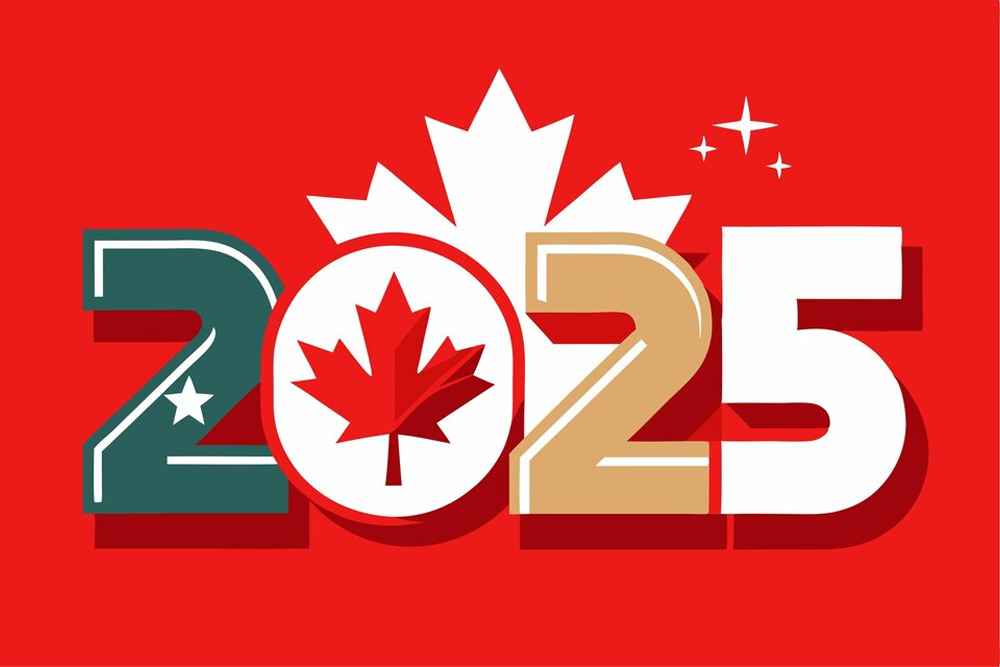Canada is one of the top and preferred destinations for international students; however, in 2024 many significant changes have been witnessed which were for the international student program.
IRCC (Immigration, refugees, and Citizens Canada) have introduced all the new changes to ensure fairness and also to streamline the overall processes for students.
Here, we will explain to you all the new rules in detail. This update could be really beneficial for all the students who are eager to be admitted to Canadian Universities or colleges in 2025. What is your current status: Are you planning to study in Canada or are you already studying in Canada?
6 New Rules: Changes for Canada’s International Students in 2025
1. New PGWP eligibility criteria
There is a change in PGWP (Post-Graduate Work Permit) eligibility criteria according to the new change international students who will be applying for PSWP must meet the eligibility criteria.
Below are the eligibility requirements for students submitting study permits on or after 1 November 2024.
University Graduates: Bachelor’s, Master’s, or Doctoral Program.
- Language Requirement: Students who are pursuing bachelor’s, master or doctoral from a University, need to score Minimum CLB 7 (Canadian Language Benchmark). To achieve CLB 7, you need a minimum IELTS score of 6.0 in all skills (Listening, Reading, Writing, and Speaking or NCLC- National Consumer Law Center 7 (French) in all skills at an intermediate level in French.
- Field of Study: There is no restriction, all fields are eligible.
Graduates from other University Programs
- Language Requirement: Students who are pursuing a bachelor’s, master or doctoral from a University, need to score a Minimum CLB 7 (Canadian Language Benchmark). To achieve CLB 7, you need a minimum IELTS score of 6.0 in all skills (Listening, Reading, Writing, and Speaking or NCLC- National Consumer Law Center 7 (French) in all skills at an intermediate level in French.
- Field of study: It must be in high-demand area in Canada.
College Graduate or other programs:
- Language requirement: In case the student has completed a bachelor’s, master or another program from college, they need to score CLB 5 (English) which stands for (Canadian Language Benchmark). To achieve CLB 5, you need to score Band 4 in Reading and Band 5 in Listening, Writing, and Speaking or NCLC 5 (French).
- Field of Study: Limited to programs aligned with long-term labor market shortages.
As per the new PGWP rules, IRCC has introduced specific field of study requirements for some programs and these fields are aligned with long-term shortage areas in Canada. Like: Agriculture and Agro, Healthcare, STEM (Science, Technology, Engineering and Mathematics, Trade, and Transport.
2. Off-campus Work hour restrictions for international students
As per the new rule, international students can work off campus while classes are in session. Now students can work for 24 hours per week which was a maximum of 20 hours per week earlier.
The main aim of the new rule is to balance students’ academic responsibilities with their work commitments which will help them to focus on their studies while gaining work experience.
3. End of flag poling for PGWP applications
As of June 21, 2024, international students are not allowed to apply for a post-graduation work permit (PGWP) at the border. This process is known as flag poling.
Flag poling is a term that is used when a foreign national who is already in Canada leaves Canada and returns to Canada without crossing the border. They do it to obtain new temporary residency which makes them eligible for the process of PR Permanent Residency.
4. Termination of student direct stream (SDS)
IRCC, has ended the SDS (Student Direct Stream) and Nigeria Student Express (NSE) visa programs.
SDS was earlier introduced in 2018 to make the student visa process simple and easy for students. The main reason for discontinuing SDS is to reduce the exploitation within the system and also to make the system fairer.
5. New rules for spousal open work permits
As per the new rules, new criteria have been introduced by IRCC for spouses or common-law partners of international students applying for Spouse work permits Now, spouses of students enrolled for professional degrees at the university like Masters or Doctoral programs are eligible to apply for a spouse work permit.
Masters or Doctoral programs are mentioned below:
- Dental Surgery Doctor
- Bachelor of Law
- Medical Doctor
- Doctor of Pharmacy
- Doctor of Optometry
- Veterinary Medicine doctor
- Nursing Bachelor of Science
- Education Bachelor Degree
- Nursing Bachelor of Science
- Engineering Bachelor Degree
6. New rules for study permit Applications at Ports of entry
According to new rules that have been introduced by IRCC, International students are not eligible to apply for a study permit at a Canadian port of entry. This particular rule affects most international students who are already in Canada: Study permit applications and extensions must now be submitted online.
In case you looking for step-by-step assistance, you can contact Abroad Gateway since we are one of the
best study visa consultants in Chandigarh. Our experienced team is dedicated to providing personalized guidance and comprehensive counseling to help you achieve your study abroad dreams.






